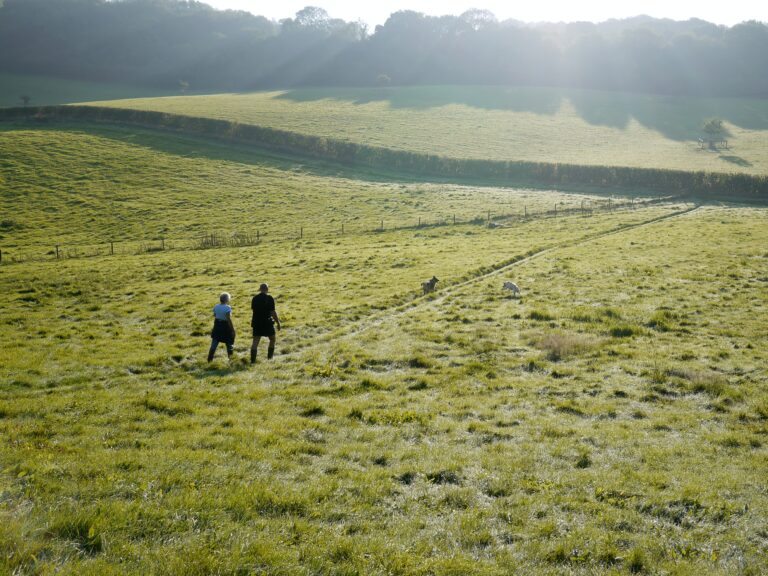Beyond lonely scrolling

Sitting alone in a living room on a dark winter night, I am staring at a screen once again. With a TV buzzing in the background, I scroll down through tragic headlines, past photos of smiling babies and occasional political rants. The warmth of the laptop upon my legs and its glow across my face create a cozy feeling perfect for a winter night.
Then, I notice the status update of an acquaintance from years ago; a little cry for help that sends a ripple of worry through me: Been feeling lonely and wanna meet some people. You guys have any ideas?
In the Gospel of Mark, there is a story about the movement of Jesus’ heart: In those days when there again was a great crowd without anything to eat, Jesus summoned the disciples and said, “My heart is moved with pity for the crowd, because they have been with me now for three days and having nothing to eat. If I send them away hungry to their homes, they will collapse on the way …” (Mark 8:1-3)
Today, two millennia later, the great crowds are online. Now, we rarely sit on hillsides and absorb the wisdom of prophets and teachers. Instead, we stare at screens and connect virtually. We often ignore those who are in the same room or neighborhood. Instead, we share and retweet the insights of like-minded friends living in other time zones.
By each act, our needs and desperation glare out at us, reflecting back at us like images in mirrors. In the gap between these flat surfaces and real-time — lived human experiences — we meet our longings for intimacy and connection; for closeness with others, God, and our true selves.
I am fascinated by how technology influences our processes of building relationships with one another today. I am especially curious about how the changes impact the way we serve, love, share and care for others. With more ways for us to connect, are our communities stronger? Healthier? How are we living out the Christian call to create inclusive communities and care for one another? Does our modern tendency to connect more through screens and devices than through human contact, touch, influence our spiritual health?
The Incarnation — God taking on human flesh — insists that our human bodies are holy, sacred. Sitting around tables and sharing bread and wine is sacramental. Praying side-by-side and sharing air and space is communion on holy ground. We are made to be together, united as one.
Yet, we often are not. In fact, there is a rise in the number of people who are considered lonely. To give you a sense of just how alone we feel, in the 1980s, 20 percent of adults were chronically lonely; a 2010 study told us that 35 percent of people over 45 are now chronically lonely. It’s even more grim for millennials. As noted in Stop Being Lonely by Kira Asatryan, “nearly 60 percent of those aged 18 to 34 questioned spoke of feeling lonely often or sometimes, compared to 35 percent of those aged over 55.” (p 28).
And, it turns out that loneliness is slowly killing us. If you are chronically lonely, your blood pressure increases, your immune responses decrease, and you are likely to gain excess weight and suffer from insomnia, headaches and anxiety. Researchers tell us that chronic loneliness increases mortality by as much as 26 percent. It is such a serious public health problem that a year ago the UK appointed a Minister for Loneliness.
We are social animals, we are meant for each other. We are called to be in community. It’s actually all science, as the research of John Cacioppo highlights.
So, what are we supposed to do? I’m not sure. I am still learning, making my way forward into serving and living in this mess. But I am certain that we are called to build connections, community.
It comes down to this: we all need to have strong connections to exist and be healthy. This is the way God designed it; nature helps us know it. Actually, scientists theorize that loneliness has a biological function; it is an innate drive that works to help our species survive. The emotions and symptoms of loneliness exist to motivate us to reach out, to get closer to the tribe … the community.
Been feeling lonely and wanna meet some people. You guys have any ideas?
My scrolling pauses and I contemplate how to respond compassionately, kindly. I know that responding to the needs of others expressed online doesn’t have the same effect as responding in-person or over the phone, that whatever words I might type could go ignored or unread.
Yet, I feel compelled to serve and care. Is this pity? Like Jesus, when he looks upon the hungry crowd?
I recognize the scale and scope are vastly different, but the question remains: how do we respond to an expressed need? What is helpful, appropriate, meaningful, real? In seconds, I settle on an action and type “Have you ever considered trying MeetUp.com to see if there’s a group in your area that you’d like to join?”
My heart sinks some and prays a bit of blessing and hope for that person. I feel uncertain about what I’ve done; unsure whether it was enough, if it really made a difference at all. It’s hard to know what’s the compassionate, Christian way to act in this modern, technology-infused world.
I return to scrolling, reading. I don’t ever follow up to see if the person is feeling better. And I don’t feel any better, either.






You are reaching deeper Julia and leaving closure for an possible event in the future. This is a good thing. A very good piece that asks us all to look at this issue.